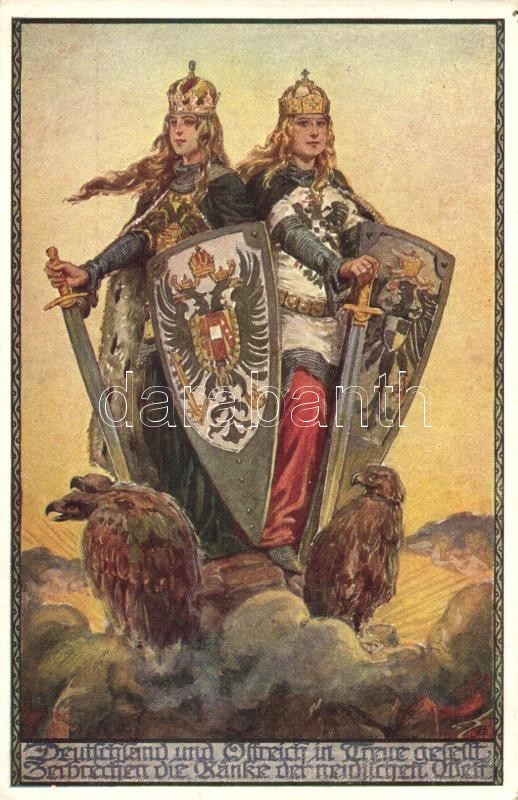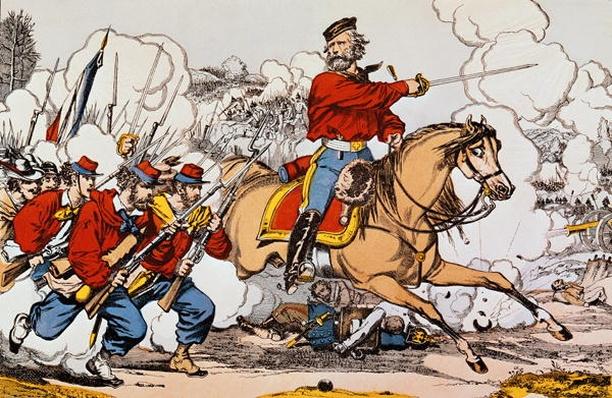Chapter VI: A Fortnight of Finances and Forts (Part E)
FillyofDelphi
Banned
Könige lassen- Kings Pass
Kronen bleiben- Crowns Live
-Credo of Hanover's Regierung der nationalen Rettung
Operation Cambridge: The Rise of the Government of National Salvation and Eve of WarKronen bleiben- Crowns Live
-Credo of Hanover's Regierung der nationalen Rettung
Much to his pleasant surprise, Bennigsen found no shortage of co-conspirators among the middle and upper-middle tier of the Hanoverian government and military. Seeing the looming disaster their Monarchs incompetence was about to plunge the nation into, even many dynastic loyalists and beneficiaries of Gudolphic patronage recognized that if the throne was going to survive the any upcoming carving up in Germany (Their isolated state no doubt being the first concession the Confederation would make , as Napoleon had tried to do little more than a half century before) they would need to avoid being at war with Prussian at any cost. Only few of the high-up members among the officers required bribes; the promise of keeping their commissions/positions (that would no doubt disappear in the event of Prussian conquest) or being looked at with favor to replace any vacated by Loyalists (Concentrated into the directly crown-appointed or politically-active upper rungs) being incentive enough for most. Trial balloons to the assemblymen had also come back with extremely posative results, even much of the moderate-right expressing concern that King George was weilding his power responsably if still legally. The preparations didn't seem to be facing any signs of suspicion or resistance either: the officers either moving around on schedule or loyally obeying the instructions from their compromised superiors. With everything going so smoothly many of the plotters believed they'd be able to seize power near-bloodlessly, which would have the huge advantage (both politically for themselves and militarily for their allies) of rendering direct Prussian intervention unessicery.
At the heart of the coup's effectiveness lay the broad appeal of it's modest, reformist program. While Bennigsen and his core backers were certainly liberals, they were clearly of a moderate patriotic stripe that took great pressures to keep out the radical republicans and socialists. Perfectly content with the idea of constiutional monarchy, sharing power with an assembly elected by a limited wealth-based franchise, they cast their movement as one against the current personal and policy of the government rather than it's principals. Thus, the only group they couldent appeal to were those specifically in favor of George V; who's arbitrary rule had left him with few defenders outside those he'd hand-picked for their posts. With the structural changes so limited, there was only one complication they'd have to sort out as they drafted the declaration which would be presented to the world and people as to their intentions: who did they intended to place on the Hannoverian throne once the kicked off the tyrant who currently occupied it?
The ideal, and for some only, legal choice would be to simply compel an abdication and elevate the Crown Prince Ernest Augustus. This move carried with it an obvious problem however: the 21 year old Ernest had yet to have children of his own and may not support taking power by extralegal means from his father. If he refused to take the throne, the plot would likely crumble out of a lack of legitimacy as there was no other strong candidates to crown... leaving the disposed monarch likely to find international support for a restoration. A clique of "dynastic Left" assemblymen, after some discussion, quickly found a novel way around any potential princely hang-ups. The Duke of Brunswick: a distant cousion of Augustus' who had come to his current position in the wake of (very similar to their planned) revolution against his brother's autocratic rule, was also unmarried and at age 60 showed no signs of producing a legitimate child. As it so happened his closest male-line relative was Prince Augustus: meaning if they offered the throne to Duke William the House of Hanover could effectively sustain its continuity.
Receiving Prussian and Brunswickin approval for the plan on the eve of the execution date (Duke William actually happily accepting the offer, as he'd been frustrated by Prussian hesitance to recognize the prospective succession for years prior), the local brokers for the self-labelled "Government of National Salvation" were signaled to make their move. At precisly 6 o'clock communications between the cities of the Kingdom suddenly fell silent: telegram operators either abandioning of being forcefully removed from their posts, engineers finding armed men blocking the doors to their cabins, and postmen's horses "requisitioned" by cavalry in full uniform. Under the shadow of mobalization, few civilans questioned the serious silence not those uninformed rank and file their orders as the unspoken assumption was the shooting war had finally begun. In the capital, the plotters had gathered in the Leineschloss a military-civilian joint council they were calling "The Government of National Salvation": consisting of members of the Estates,high ranking officers, and a handful of city officals. From that centeral location, they could easily dispatch runners with assignments to their various battalions as to what streets or buildings they were to picket: the greatest concentration being sent to baracade the enterances to the armory building in Royal Barraks. By the time the Guard could be roused from bed and organize a counter-move, than,they found themselves outgunned despite locally outmanning the traitor brigades.
At just under an hour before her normally was awake and dressed for the dat, the King is often described as having been (literally and figuratively) caught with his pants down by the brazen move. The army having been so active and obedient in following his orders to have the best formations shadow Prussian manuvers along their border as well as personally being deep in preparations to join them on their glorious campaigning, the thought of a mass mutiny haven't even crossed his mind. Still, in the early hours of the moarning George tried to take decisive and direct control of events from the Herrenhausen: dispatching couriers towards the Barraks with orders to gather an escourt which could clear out a path to the center of town where he could make a direct showing to his subjects and denounce this treason. Had these men been able to use their usual stallions, this move might have succeeded and, if not shifted the course of history, certainly change the fate of the region by killing the coup (and in all likelihood the last hope for Hannover's independence). With traitor forces manning the wider streets and obviously set to shoot anyone trying to pass at full gallop, discresion and speed were mutually exclusive so by the time the loyal pages could reach the Barraks by trot the big guns had already been trained on the facility throughfares; keeping the Loyalists trapped in their bunkhouses.
By noon,the G.o.N.S had occupied enough of the key facilities of the capital to openly state their intent. To do so they sent out criers with prepared copies of a speech to pronounce block by block, declaring that "To save our Constiution from usurptions, our Country from pillage, and our Crown from being seized as booty of war" the despot George V would have to step down. They claimed that the Prussians had issued an ultimatium after the King's earlier rejection of demobalizion, saying they still had time to avoid an invasion that would end in annexation if George would abdicate to a sucessor who pledge not to move their army in to attack Austria, and finished off with a call to the monarch to step down for the Duke of Brunswick (who'd already given such a pledge) for the sake of the nation's survival.
In the intervening hours, detachments of troops, servants with private arms, and elements of the constibles loyal to the regeime had been concentrated into an ad-hoc legion in the gardens of the Royal Palace, prepared to fufill their earlier order of escourting the King to the front of the assembly to remind them and the people who they owed their loyalty to. Here, however, he found his wrathful resolve starting to crack under fear. Not of parading to the Leineschloss; the coup leaders would be signing their own death warrent if news got out they'd killed him in cold blood as the rest of the country rallied to his son, but of what Whilhelm's agents would do if they got their hands on him. Well aware from his updates on the front to plan the campaign he would lead there could be no delusions of what would happen to his army if they were caught in the media blackout that must be accompanying such a move: they'd be picked apart peice by peice until there wasn't enough to fight back even if they did manage to concentrate. It would be easy enough to strike this conspiracy down, but all that would get him was a few more weeks of power and likely prison. Meanwhile, abdication would mean a comfortable exile on pension... perhaps on a nice Carribean island.
By 2:00 pm, he'd made his decsision and ordered his loyalist legion to escourt him to the assembly assembly hall with all the pomp and ceremony they could muster. Gathering up all the best finery from the palace, ordering in a band from the consert hall, and organizing a procession of nobility and priests, George V insisted on going out not with the appearance of a resigned exile but with the dignity of the Divine monarch he was. This massive impromptu display: referred to as the "Triumph of Tragedy" by some, is reguarded by many as a surprisingly regal swan song of the old medieval understanding of Kings: the final time a major ruler would ride on horseback in full regalia rather than a modern military uniform. Surrounded by his men, the King stood in the courtyard in front of the assembly and, as Benningsen sent forward a balif to remove the symbols of royal office, defiantly ordered the Legion to stand in his way and humbly brought forward the Landesbischof of the Evangelical-Lutheran Church to transfer them to the G.o.N.S.
Having a signed document of abdication, the coup members at the telegraph office were ordered to reopen the line to Brunswick,the emergency Assembly declaring by acclimation their offer of the throne to the Duke and that new elections would take place a month after the corination. This message to Brunswick could then be forwarded to the Prussians, who had until now been holding back on standing orders to wait for 6 am on the 29th to cross the border (Giving the coup 48 hours). General Falkenstein, commanding the Prussians forces on the Hannoverian front,received the verification by late that evening and altered their orders: commanding a march to the borders of the Free Cities and petty principalities to intimate them in to line. Most fatel among these was the assignment given to von Goeben's 13th division, who was sent south to secure the city of Frankfurt...

